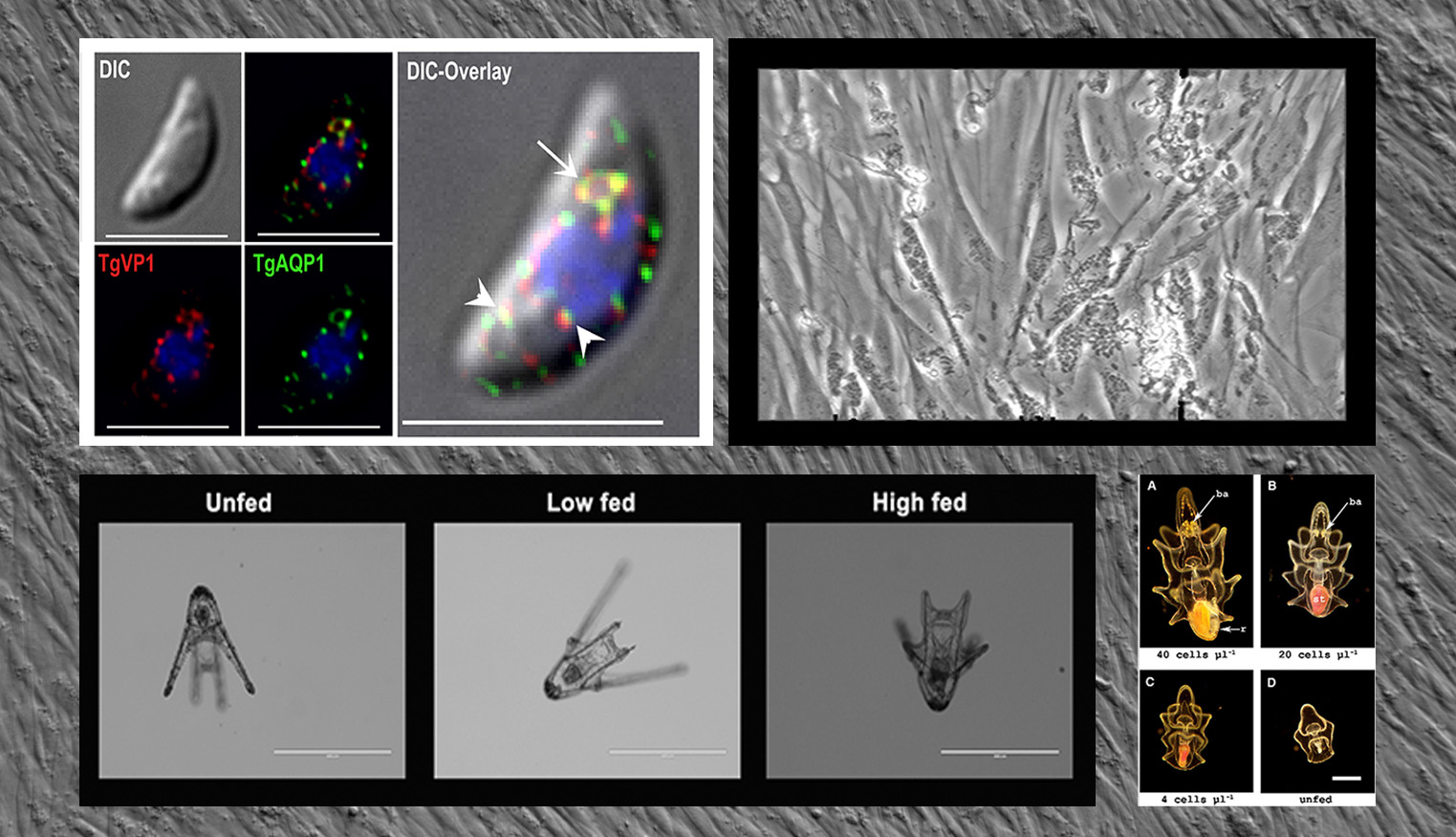Exploring the mechanisms by which organisms solve the problems they encounter in their respective environments.
 The
Ecophysiology Lab at California State University Long Beach is located
in the Molecular Life Science Center, room 221. It is run by Dr.
Douglas Pace.
The
Ecophysiology Lab at California State University Long Beach is located
in the Molecular Life Science Center, room 221. It is run by Dr.
Douglas Pace.
The
Ecophysiology Lab specializes in understanding the physiological
solutions that organisms can employ in order to survive and thrive in
their natural environments. In the broadest context, this allows us to
gain a better understanding on how organisms might then respond to
changes in their natural conditions. Such an approach is extremely
important for many reasons. Firstly, given the rapid change in the
natural environment (the marine coastal environemnt, for example), it
is imperative that we understand the amount and type of stresses that
are being placed on organisms. With out such information, species
distribution and overall survival may be adversely effected. Another
important aspect of such research can also be extended to
understanding parasitic relationships. By knowing how a parasite
interacts with its host (which is analogous to its environemnt) and
understanding its physiological strategies, we can come to a better
understanding of how to disrupt this intimate and sometimes very costly
relationship. Therefore leaving us in a better position to treat, or
ultimately stop parasitic infections.
Currently
our lab is addressing these 2 components of ecophysiology with two
fundamentaly different conceptual apporaches. The first project is
understanding the ecophysiology of development in marine invertebrates.
These studies are investigating how marine invertebrate embryoes and
larvae are able to cope and actually grow and develop in the
every-changing landscape of the marine coastal environment.
Specifically we are investigating how changes in highly relevant
environmental variables such as food and temperature are effecting
their ability to grow and develop.
Our
second project works on the ecology of a much smaller scale, that of
the cellular environement. Here we are attempting to understand the
molecular physiology of Apicomplexan parasites. Parasitic relationships
are a basic and omnipresent strategy for life on
Earth. Apicomplexan parasites originated in the marine environment
and eventually evolved into some of the most dangerous parasites on
Earth (e.g., the malaria parasite, Plasmodium falciparum). Our lab
focuses on the human (and all mammals) parasite Toxoplasma gondii. This
parasite is an obligate, intracellular parasite and has received much
media attention lately for its ubiquitous distribution (it infects
20-30% of the global population) and possibility of influencing human
behavior. The Ecophysiology Lab at CSULB is interested in understanding
the physiological mechanisms this parasite uses that allows it to be so
widespead. T. gondii is able to infect all mammals (including marine
mammals) and all cells within mammals that contain a nucleus! We are
primarily interested in elucidating how the parasite survives during
the critical period where it leaves a host cell in search of a new host
cell to invade. We are further interested in using the vast amount of
data acquired for human Apicomplexan parasties (like T. gondii and the
malaria parasites, P. falciparum) and using it as a starting point to
understand the role of Apicomplexan parasitism in the marine
environment, where this clade of parasites emerged from and is still
ubiquitously found in all marine habitats today.
Other
research interests and projects (including pictures, vidoes, and
publications) of Dr. Pace's research can be found by clicking anywhere
on this sentence.
If
you are interested in pursuing a Masters Degree in Ecophysiology at
CSULB, please contact me via email (Douglas.Pace@csulb.edu). I am
currently looking for
highly motivated graduate students interested in working on any of the
projects described above: Ecophysiology of Marine Invertebrate
Development or
Molecular Physiology of Apicomplexan Parasitism. I look forward to
hearing from you!
Contact:
Douglas Pace, Ph.D.
Molecular Life Sciences Center, MLSC 228
Biological Sciences
Cal State University - Long Beach
1250 Bellflower Blvd
Long Beach, CA 90840-9502
(562) 985-4825
email: Douglas.Pace@csulb.edu
 The
Ecophysiology Lab at California State University Long Beach is located
in the Molecular Life Science Center, room 221. It is run by Dr.
Douglas Pace.
The
Ecophysiology Lab at California State University Long Beach is located
in the Molecular Life Science Center, room 221. It is run by Dr.
Douglas Pace.